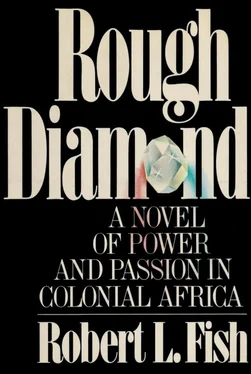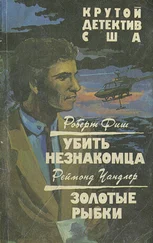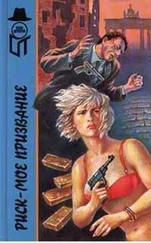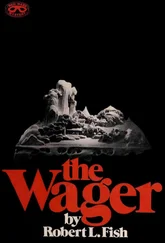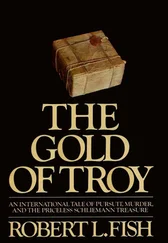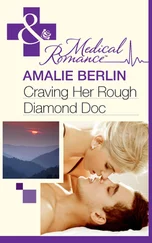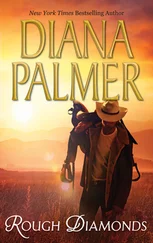MacArthur grinned sheepishly. “Sorry, Kitty.” He bent over the paper, putting down symbols. “Au + NaCN—” He looked up. “Farraday used water, too, as I recall, to obtain sodium hydroxide as a by-product. To reduce the sodium.” Both Will and Bob Forrest were watching him carefully.
“You’d get a faster reaction if you were to bubble pure oxygen through the solution,” Will Forrest pointed out, wishing to contribute.
“Pure oxygen is expensive,” his brother pointed out, his Scottish heart automatically rejecting the suggestion. “We’re trying to save money, not spend it.”
“Use air then,” Will said. “That isn’t expensive. The oxygen in the air will do the trick, and the nitrogen, I’m sure, won’t do any harm.”
“We hope,” MacArthur said, and crossed out his first attempt, starting a second formula. “Au + NaCN + H 2O + O 2—”
Will Forrest reached over, putting his hand over the paper.
“We’re going about this the wrong way,” he said quietly. “Let’s consider what we want to end up with, and then backtrack to see how to get there. What we want is sodium hydroxide and the gold-cyanide solution—”
MacArthur shook his head stubbornly.
“It isn’t that simple or someone would have done it years ago.” He went back to his scribbling, crossing out, adding, a frown on his face. At last he looked up. “We’re going to have to have enough sodium not only for the sodium hydroxide but for a combination of gold and sodium cyanide. Then we can work on the gold-sodium cyanide and separate out the gold. A number of metals might do the trick, leaving the sodium cyanide.” He pushed over the paper. “I think this is probably where we should start.”
The formula read: “4Au + 8NaCN + O 2+ 2H2O.”
Will frowned. “You mean we start with sodium cyanide and we end with sodium cyanide?”
“That’s how these things sometimes work,” MacArthur said cheerfully.
Bob Forrest was interested in another problem. “Why four gold and eight sodium cyanide?”
“Because I’m the chemist and you’re only doctors,” MacArthur said with a grin, “and because chemistry is a funny thing, as you should know by now. You only get out what you put in, only in a different form.” He bent back to his paper, muttering to himself as he did computations in his head, and then completed his formula. “—= 4NaAu(CN) 2+ 4NaOH.”
Will Forrest studied the paper, frowning, and then looked up. “It looks simple enough, but will it work?”
MacArthur shrugged. “It’s easy enough to find out. All we have to do is try it.”
“Cyanides are dangerous to work with,” Bob Forrest objected, always the pessimist.
“The concentration doesn’t need to be very high,” MacArthur said, not at all bothered by the statement. “Farraday worked with a one per cent solution, I believe. We can start even weaker than that. Start with a tenth of one per cent and work our way up, if need be.”
“But would a solution that weak work?”
“We’ll only find out trying. Besides,” MacArthur said with a broad smile, “it seems to work in this pub for the beer. That certainly can’t be any stronger than one tenth of one per cent alcohol, and they don’t seem to have any trouble getting rid of it.” He watched his companions finish their meat pies and empty their steins. “Well, shall we go back to work and see if the great Michael Farraday knew what he was talking about twenty-five years ago? Not to mention the ubiquitous but less famous Julio Rae, whoever he was?”
Bob Forrest frowned as he came to his feet, looking down at MacArthur. “And if the formula works, what then?”
“Then we take our little gold-sodium cyanide and start combining it with every known metal — except gold, of course — working alphabetically, which is the scientific method, until something happens. With our luck,” he added with pretended mournfulness, “the one that finally works will probably turn out to be zinc!”
He stood up and started to lead the way from the pub, anxious to get to his test tubes and his formula.
“Mr. MacArthur! Gentlemen! Your bill!”
MacArthur turned back, smiling, reaching for his wallet.
“Kitty, Kitty, Kitty!” he said reproachfully, handing her a note. “Don’t you know that the first sign of pure genius in a scientist is his forgetfulness?”
Leah Primrose Barnato was born on March 16, 1892, and a prouder father than Barney Barnato would have been hard to find. Leah Primrose was a beautiful, healthy child who Barney was pleased to see was going to resemble his wife’s side of the family, rather than his own, and Barney could hardly wait to take his daughter around Johannesburg and show her off. It took all of Fay’s strong will and persuasion to hold him back for at least the first few months of the child’s life, but after that it was impossible. It was quite commonplace to see Barney Barnato come wheeling Leah’s pram to the Sunday races and point out to the punters, often interrupting their betting, just how lovely his daughter was; or find him pushing the pram into the Stock Exchange and — waving away any who dared bend over the child with a cigar in his mouth — hold up the chalking of prices while he expounded on her virtues. Or see him march proudly into the Rand Club, lift Leah from her pram and set her on the bar, and beam at the other patrons as he bought a round of drinks, heisting his glass in a toast to “the prettiest, cleverest, strongest, most intelligent baby in the world” and practically daring anyone in the place to disagree.
And it was on a day when he was doing exactly that in the Rand Club — Leah had begun to show signs of teething, which Barney seemed to think was something no other child on earth had ever done before, certainly not at her age — when Solly Loeb burst into the club and raced down the bar to Barney’s side. Barney frowned. In the first place, overt exercise on the part of his nephew Solly was quite unusual; in the second place, any sudden motions seemed to upset little Leah, especially at the moment. Solly’s face was red; he was gasping.
“Barney! Barney!” Solly suddenly seemed to realize he was causing a bit of a scene, that his obvious agitation was drawing attention that was precisely the last thing he wished. But his news was so momentous it was difficult to appear calm. Still, he forced himself into an approximation of composure, and dropped his voice. “Barney, let’s get out of here. I’ve got to talk to you. It’s important.”
Barney merely nodded. He finished his drink, carefully placed Leah Primrose in her pram, waved to the others along the bar, and walked out, pushing the pram before him. Solly sidled alongside him, bursting with his news. Once they were in the street and Barney had covered the open portion of the pram with a netting against the dust of Commissioner Street, Solly could hold out no longer.
“Barney, d’you remember those two fellows from Scotland? Forrest and MacArthur? Who said they had a process for the extraction of a hundred per cent of the gold from the rock?”
“I remember. They claimed they had proven their process in Australia and America. We gave them the use of our laboratories for them to prove it here.”
“Well, by God, they proved it! They actually proved it! You know, when they first came down here—”
“—you wanted to throw them out of the office.”
Solly waved this away as being unimportant. “I admit I didn’t believe them. Why would they have come to South Africa last? Well, I was wrong, I admit it.” Barney looked at him; for Solly to admit he was wrong was a major event. “I just came from the laboratory, Barney! It works! The process really works!”
“I was sure it would.”
Читать дальше
